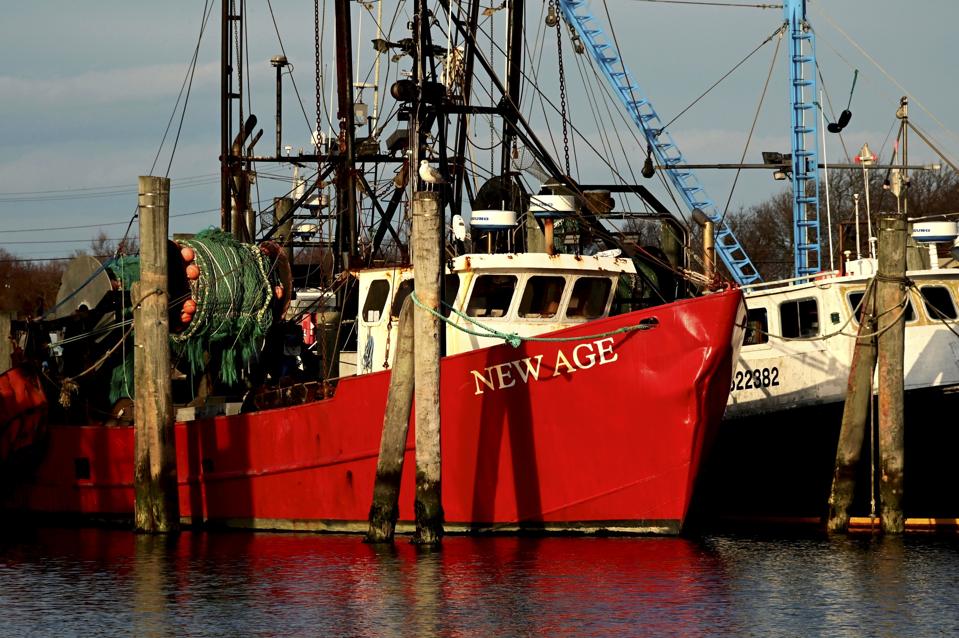The American fisheries sector is the beneficiary of an April 17 Trump executive order. The order’s implementation could result in reduced regulatory burdens and a procompetitive, economically efficient expansions of U.S. fisheries output. It might also inspire U.S. consideration of additional efforts to improve global fisheries management.
The Fisheries Executive Order
Overregulation is a serious problem afflicting U.S. fisheries. While federal regulations are designed to promote sustainable fishing and protect marine ecosystems, some badly designed rules impose economic harm on fishermen and communities that rely on fishing. These regulatory design flaws can generate excessive costs and job losses in the American fishing industry.
An April 17 presidential Executive Order on “Restoring American Seafood Competitiveness” seeks to “promote the productive harvest of our seafood resources; unburden our commercial fishermen from costly and inefficient regulation; combat illegal, unreported, and unregulated (IUU) fishing; and protect our seafood markets from the unfair trade practices of foreign nations.”
In sum, the Fisheries Order seeks to strengthen the U.S. fishing industry and support American fishermen by reducing regulatory burdens, combating unfair foreign trade practices, and enhancing domestic seafood production and exports. In context, the Order is part of the President’s broad agenda to promote U.S.-based industries and domestic production.
Key Fisheries Order provisions include multiple directives to federal agencies:
- The Department of Commerce (the U.S. fisheries regulator) must (1) consider suspending, revising, or rescinding regulations that overly burden America’s commercial fishing, aquaculture, and fish processing industries at the fishery-specific level; and (2) take action to reduce the regulatory burden on the most heavily regulated U.S. fisheries, in cooperation with private sector stakeholders.
- The DOC shall (1) solicit public comments on improving fisheries management and science; and (2) ensure that executive agencies focus on fisheries management and science and on supporting priority needs that strengthen the U.S. seafood supply chain.
- The DOC National Marine and Fisheries Service shall reduce its fisheries management costs and act to improve the responsiveness of fisheries management to real-time ocean conditions.
- The DOC, with the Department of Agriculture, shall develop and implement an America First Seafood Strategy to promote production, marketing, sale, and export of United States fishery and aquaculture products and strengthen domestic processing capacity.
- The DOC and the U.S. Trade Representative will develop a comprehensive seafood trade strategy that improves U.S. producers’ access to foreign markets and addresses unfair foreign trade practices (with particular emphasis on IUU foreign fishing).
- In particular, with the cooperation of the Departments of Homeland Security and Health and Human Services, the DOC will take aggressive action to prevent IUU fishing from entering the U.S. market.
- The DOC, in consultation with the Interior Department, will provide the President recommendations regarding opening to commercial fishing the Pacific Islands Heritage Marine National Monument. This is a half-million square mile conservation zone in the central Pacific Ocean, established by presidential proclamation and managed by the DOC and the Interior Department.
Additional Fisheries Reforms
Implementation of the Fisheries Order would be an excellent first step toward promoting the growth of American fisheries in a more efficient, less regulatory manner.
Additional international reforms, led by the U.S., could further enhance the effectiveness of fisheries reforms. The Trump Administration might wish to consider four initiatives:
- Working with like-minded nations to reduce national government subsidies that contribute to overfishing and unsustainable fishing practices. This would involve closing loopholes in a World Trade Organization fisheries agreement the U.S. signed in 2023.
- Negotiating a plurilateral deal among major fisheries nations featuring information exchanges dealing with overfishing and including enforcement measures to deter IUU.
- Collaborating with industry associations and consumer groups to promote market-based scientifically sensitive fisheries standards for sustainable fishing.
- As a long-term project, working to create tradeable property rights in U.S. fisheries quotas through the empowerment of U.S. fishing communities and the reduction of federal regulatory micromanagement.
More generally, the Mercatus Center, a non-profit university affiliated research center that advances knowledge about how markets solve problems, co-hosted a symposium of fisheries experts in 2023, focused on possible solutions to global fisheries problems. Research papers generated by that symposium explore a variety of market-oriented solutions to fisheries problems that may merit study by the Administration.
In sum, the Fisheries Order may prove to a catalyst not just for strengthening the U.S. fisheries sector, but also for market-oriented changes that improve global fisheries.

